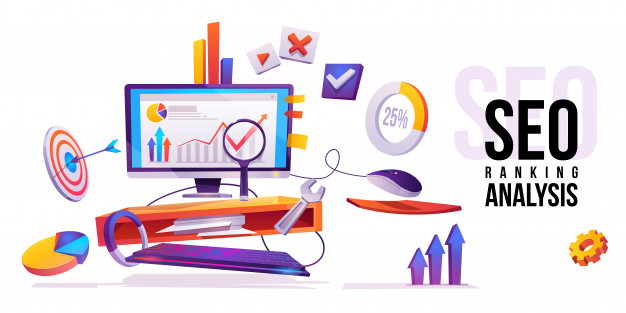With the evolving technological domain, a lot of things have changed, even in the field of Search Engine Optimization. Practising the best SEO techniques is the set of tasks that will help you to improve your website’s search engine rankings. On the other hand, you must adopt current practising methods of SEO on your website.
With more useful tips and tricks, you will be able to upgrade your website rankings amongst all the other sites on the internet. Once you get all the foundation in place, you have to get into more new advanced approaches to improve the website SEO. Read to find the life-saving innovative hacks.
Top 10 Tips to Get the Best out of Website SEO
Here are 10 ultimate and useful tips that will help you while practising SEO. In the year 2020, without these helpful tips, you cannot rank your website in the higher registers.
Tip 1: Add the main keyword
Keywords are the most important components among the collected items on your page. Decide what your main keyword should be. After that, always mention it at least once at the top of your page. Google generally puts more attention to the terms that appear on the top of a web page.
Tip 2: Unique Titles and descriptions in your content
Always avoid providing duplicate materials in the form of content. It is the key to create something which was not present before. Your title, meta descriptions, product descriptions, images, and others must be different from all the other websites on the internet. This step might be tricky but 100% worthy.
Tip 3: Create links to other websites with relevant content
Link building will always remain a fundamental part of SEO. Many people think that this can drive someone out of your website. No, absolutely not, because it will only help you to get more relevant information. Additionally, the value of that latter website will be higher.
Tip 4: Regular Update your content
Search engines are pretty much sensitive about content all over the internet. Regular updates of the contents will help your website to fulfil the criteria set by Google. It will also impart a positive impact on the site’s relevancy. Before updating content, it will be a good idea to audit it on a certain schedule.
Tip 5: Use Alternative Descriptions
If your website’s contents consist of writings as well as audio-visual materials then it will be an excellent idea to use the Alt (alternative) tags or text descriptions. This allows any search engines to find out your page. Furthermore, it also helps those people who use text-only browsers or screen readers for searching.
Tip 6: Optimize your website’s loading speed
Google generally doesn’t share much information about its searching, sorting, and ranking algorithms. But, when they give attention to ranking, then its really a big deal. Any website’s loading time plays a vital role in ranking factors. So, it is recommended that you must keep your website load as quick as possible.
Tip 7: Monitor your site results with Google’s Search Console
While performing SEO, you must use the Google Search Console setup. It will help you to track, monitor, and regulate your website by creating a live dashboard. The dashboard belongs to this search console and it will let you know the results of your website.
Tip 8: Primary for Humans, secondary for Engines
Sometimes, few people follow the same old school procedures of SEO practice. The creation of quality and valuable content by using a singular keyword and focus on ranking fall. Now, it is high time to change your entire perception. What you have to do is to forget that any type of engine really exists. Write content that will help people with enough information.
Tip 9: Provide Optimized Images
If you add images to your content optimized by Google, then it will be much fruitful for the ranking of your site. Practising images of SEO optimized is really easy as Google cannot see images. The engine only identifies the image extension. In addition to that, applying the proper name of that very image is also a vital task. If you don’t name it as per the image, Google will not approve it.
Tip 10: Use Meaningful URLs
If visitors to your website don’t understand the URL, then the engines will not understand either. Create an URL that might be a bit lengthy but easily understandable. Never put any number or any special characters and capital letters in your website URL. Use words, hyphens, and slashes (back and front).
Lastly…
Make sure that there are only 2 to 4 words in the URL. This makes it easier to be recognized by the search engine. You can also request the search engines to block dynamic or malicious URLs that are harmful to the website. So, by now you are geared up to make the most out of your websites.


